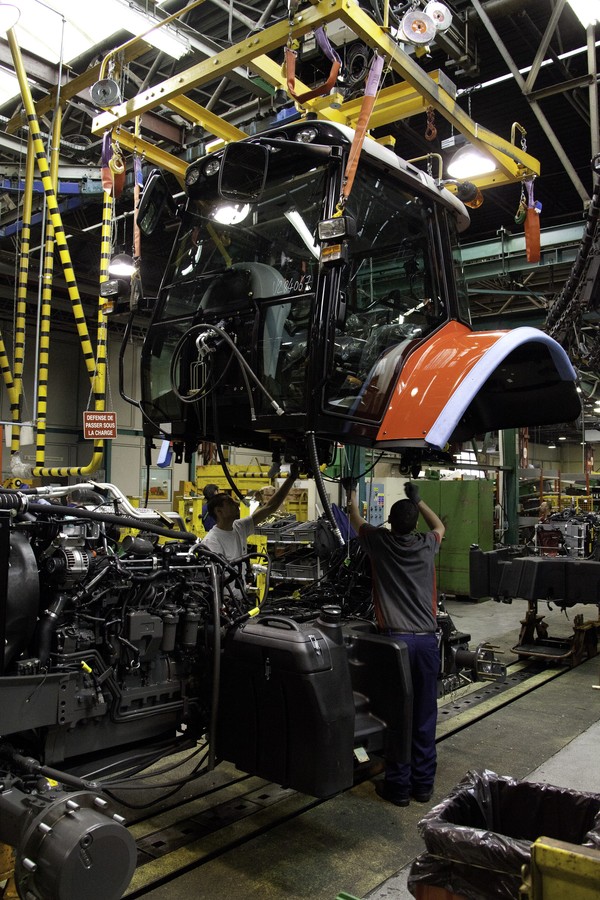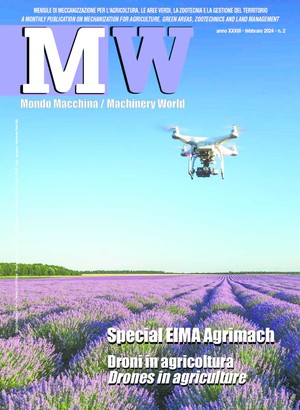
SCIP database, still little known
On January 5, 2021, the requirement to notify the SCIP database of items containing hazardous substances that have been placed on the market came into force. There is still little knowledge about how the database works. The manufacturers of agricultural and gardening equipment are experiencing difficulties obtaining information on hazardous substances in the supply chain. For this reason, FederUnacoma has promoted a series of initiatives to help deal with and understand these new obligations
SCIP (Substances of Concern In articles, as such or in complex objects - Products) database was established to collect information on "substances of concern" that can be found in articles as such (for example components) or in complex objects such as agricultural equipment (see the article published in Machinery World April-May 2020). The aim is to promote the replacement of substances of concern by less environmentally and health-impacting substances, helping waste managers ensure that these substances are not found in recycled materials and enable the recipient of these materials to make an informed purchase.
On October 28, 2020, at the launch of the database official version, ECHA (European Chemicals Agency) allowed companies to start notifying their products even before the entry into force, officially foreseen for January 5, 2021, the occasion of the launch of the database official version.
However, at the moment, it is not clear enough how the notifications must be carried out, so much so that the Agency itself, in a note of December 16, 2020, reported that it had already received two million notifications to the database, containing, in many cases, irrelevant information.
ECHA, to avoid the transmission of inappropriate data, has repeatedly reported in the information material disseminated that it is necessary to notify only those articles containing Substances of Very High Concern (SVHC - included in the so-called "Candidate List") and in a concentration above 0.1% weight by weight of the article.
Additionally, to this issue, it is difficult for companies to find information on these substances of high concern in items along the supply chain. In order to address this, the Italian Federation of Agricultural Machinery Manufacturers (FederUnacoma) has drawn up a "Letter for Suppliers” to provide the information necessary for notification and, if applicable, the SCIP Number (the alphanumeric code resulting from the notification), which is useful for fulfilling the obligations provided for in Article 33(1) of the REACH Regulation.
The dissemination of such information is a crucial element to achieve a twofold objective. On the one hand, the advantage for the consumer of knowing whether the article he would like to purchase contains substances that are potentially hazardous to health and the environment. On the other hand, there is a legal obligation for those who place articles on the market and therefore need to obtain the information along their supply chain.
Once the information is collected, businesses, depending on their product portfolio, are required to make the notification. From the industry, which has in-depth knowledge of the products and their sectoral peculiarities, more functional and consistent aggregate formats have been proposed for notifications of overly complex products, such as agricultural machinery, which have a wide range of configurations and custom solutions.
ECHA, supporting the industry's demands, has finally referred to the national authorities the possibility of approving these aggregate formats. Consequently, FederUnacoma, with the support of the Confederation of Italian Industry (Confindustria), requested the applicability in Italy of the new aggregate formats, particularly for the sectors represented, in a meeting with the Ministry of the Environment and Protection of Land and Sea, the Ministry of Economic Development and the Ministry of Health.
The discussion with the authorities is still in progress, and the Federation supports the companies of the sector by acting as spokesperson concerning the requirements and problems connected to the database, which is however destined to be soon one of the most strategic data collection platforms among those provided by the European Commission.
For more information: https://echa.europa.eu/it/scip








